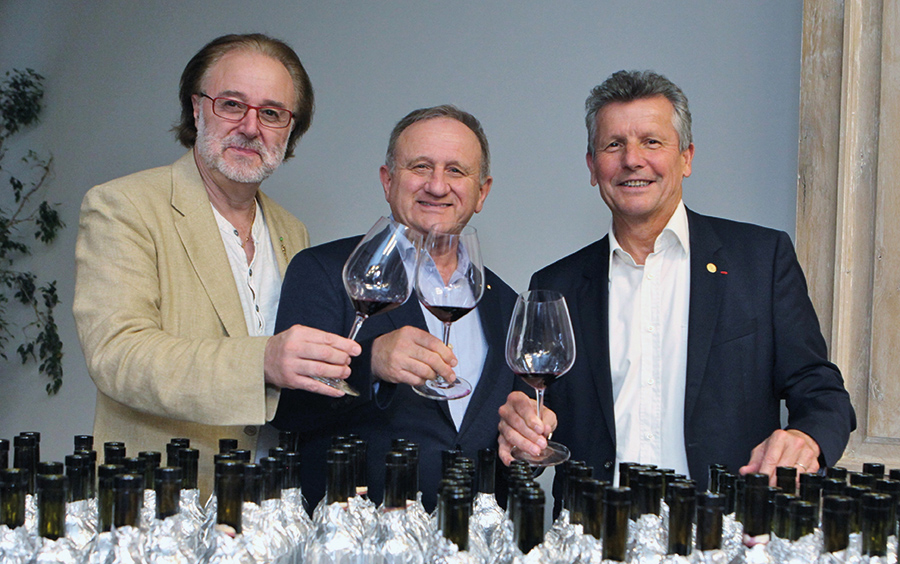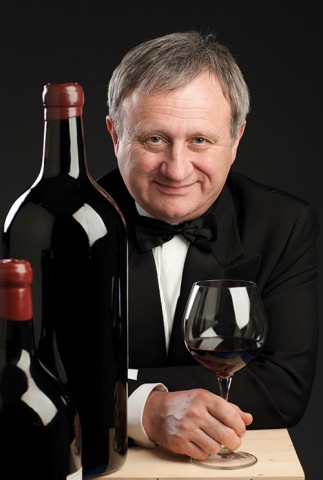
Giuseppe Vaccarini is a pioneer because he represents the emblem of modern sommellerie in Italy and in the world. The Best Sommelier of the World ASI 1978 in Estoril, Portugal, has always had a great passion for drinks, in particular for wine, as evidenced by the Laurea h.c. in Gastronomy, with specialization in food-wine pairing, of the Study Center of the University of Lugano in 2002. He has presided for several mandates over the most important sommelier associations in Italy (AIS - Associazione Italiana Sommeliers and more recently ASPI - Associazione Sommellerie Professionale Italiana), as well as ASI - Association de la Sommellerie Internationale, stimulating the creation of sommelier associations in over 30 countries of the various continents. He has favored the development and the affirmation of the profession of sommelier in Italy and in the world, first modeling the educational training for sommeliers, now used in Italy and also appreciated in other countries, thanks to the creation of methodologies related to sensory analysis, tasting of wines, beverages and related combinations, as well as to the codification of service techniques, with the publication of numerous books, by some translated into multiple languages. He has been collaborating for years with the main national gastronomic magazines and collaborates with some large multinationals in the food sector, where he has strongly contributed to the creation of highly successful products. Always attentive to the evolution of tastes also in other continents, for some years he has turned his attention to Asian markets where he has been called in some universities to illustrate and make Italian products known and appreciated.

What is the most difficult thing in a great competition such as the world championship?
In the world competition there is nothing difficult because those who have committed themselves and prepared in depth the issues of written and practical tests, have nothing to fear. With all honesty, however, it must be emphasized that, as also happens in sport, victory is a set of factors that also include a bit of luck. The only thing that I consider important is that of dominating the stress together with the ability to withdraw from the context to feel like immersed in work in one’s own restaurant. In specific tests it is necessary to act as an actor in a theater.
What is the most striking memory you keep from the competition in 1978?
I remember two very intense moments: the recognition of five wines tasted blind, I felt I was not wrong, and the moment of proclamation because suddenly the tension ended and I freed some tears of satisfaction.
The 2019 world competition has just finished. What advice would you give to the winner, Marc Almert?
Difficult to give advice. Everyone has his own vision of the work and how to manage the title. I wish him other professional successes but above all to maintain the humility, the discretion and the mood that he showed during the tests of the competition.
What advice do you give to young sommeliers?
I would say to young people that if they tackle the work of the sommelier with simplicity, passion and humility, they will first and foremost enhance their personality, and at the same time they will contribute to strengthening the image of the profession by gaining support from customers and future generations.
Win the World Competition, what did it represent for you?
Although the profession of sommelier at the end of the 70s was still not widespread and known, the victory represented for me an important turning point that changed my life. Since I believe that it is necessary to be grateful to those who have given me this opportunity, I have always tried to promote the profession among young people: I have worked to develop new themes and work methods to give them the support they need to undertake a profession that values human relationships and that returns great gratifications.
Interview by Sylvia Van der Velden